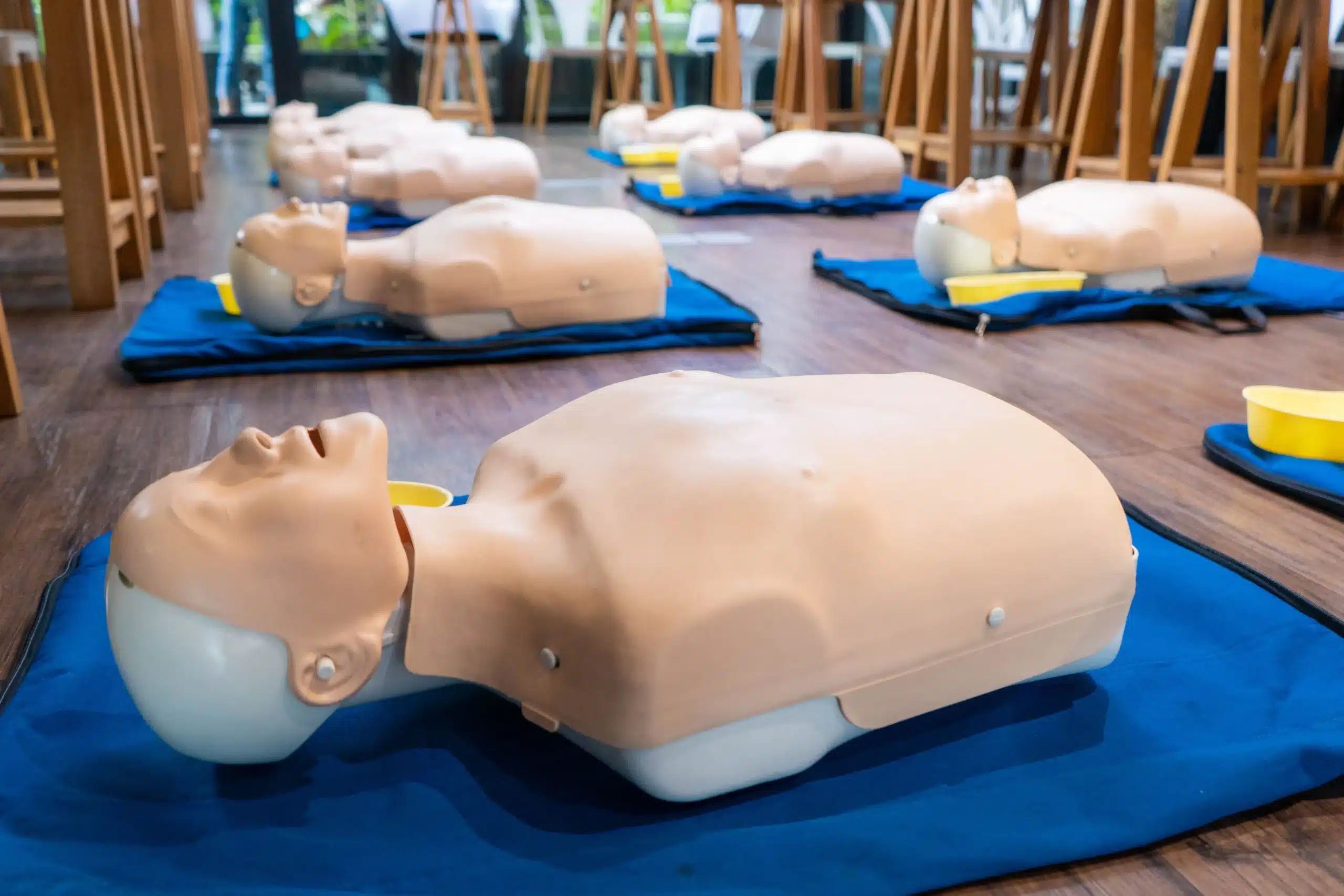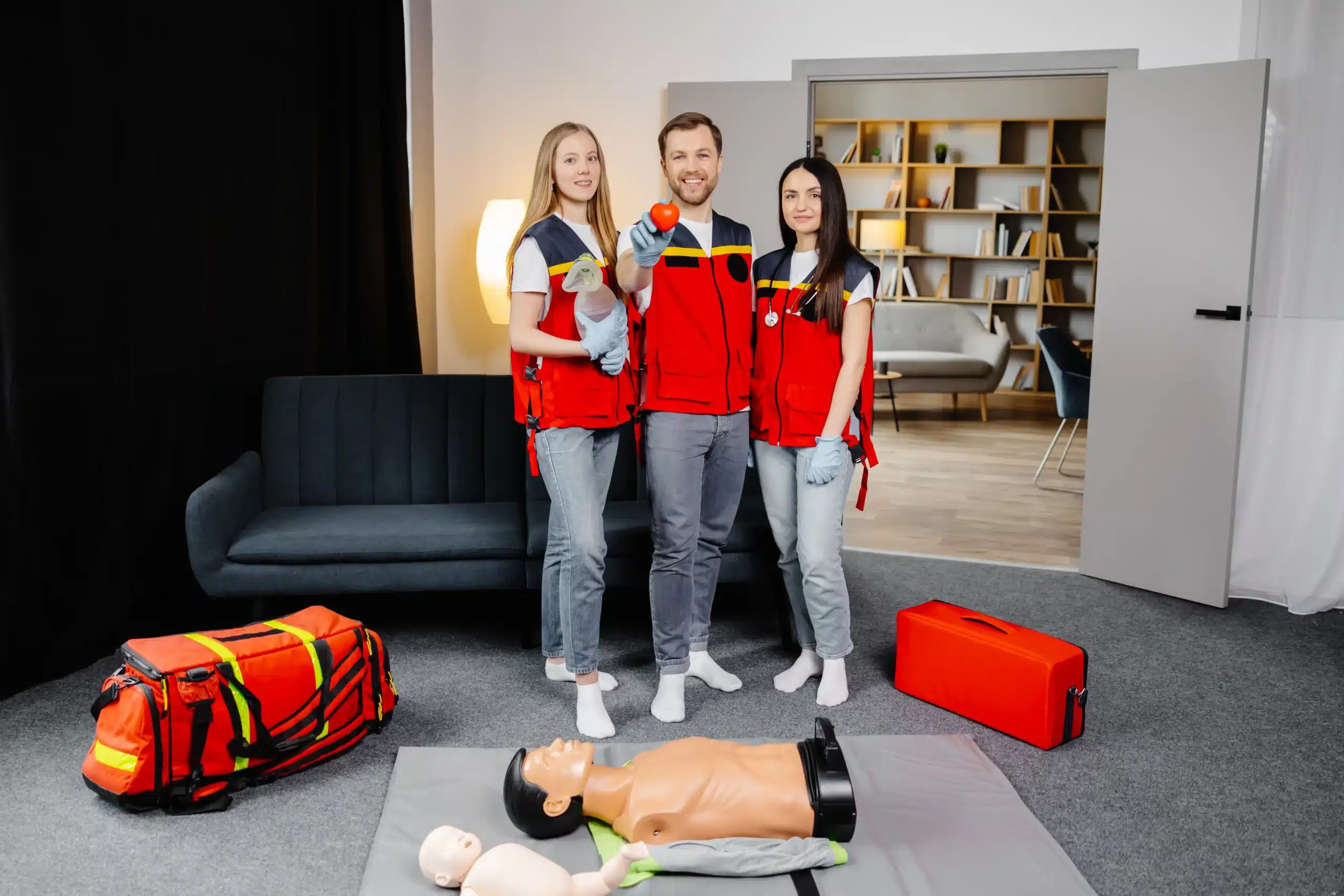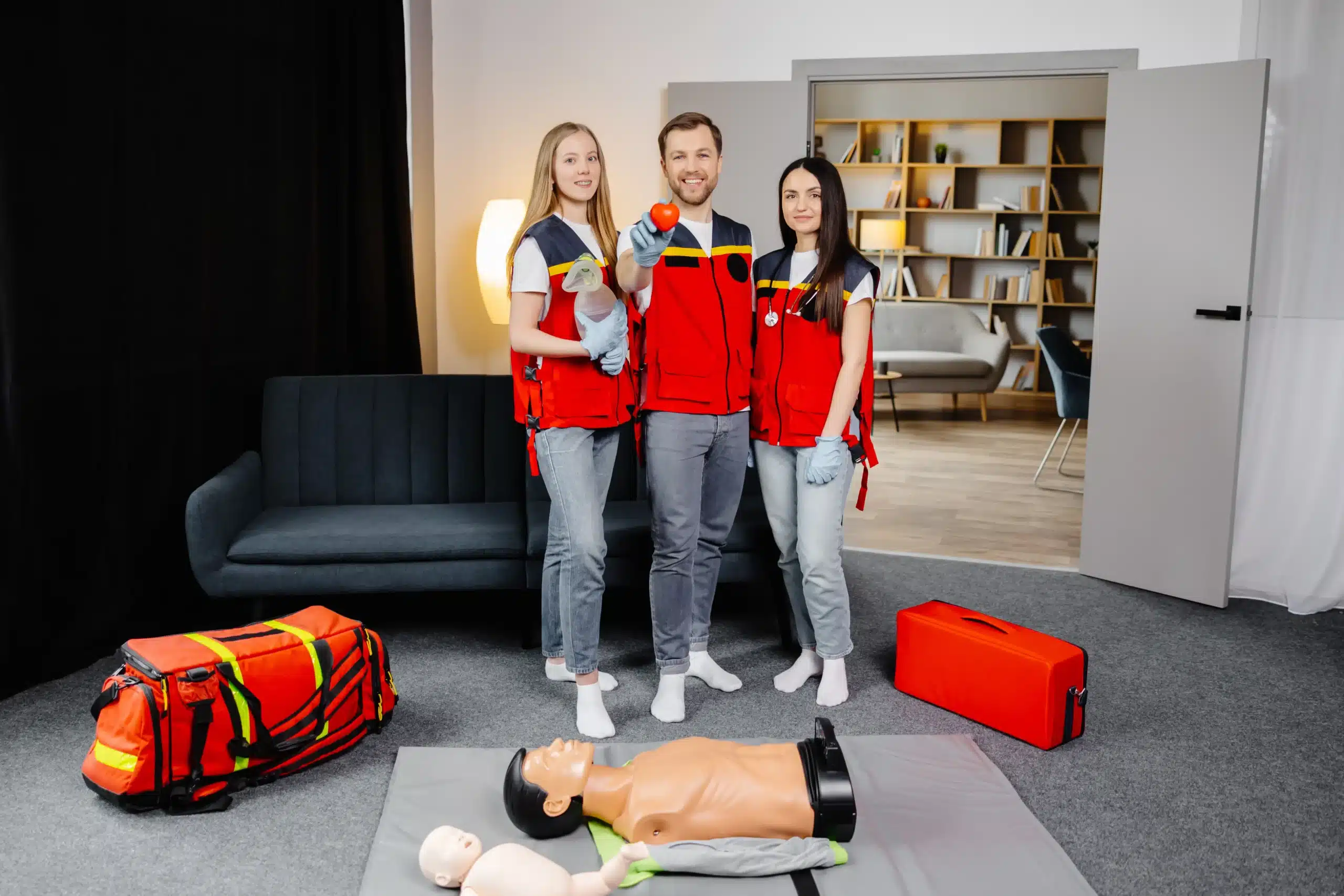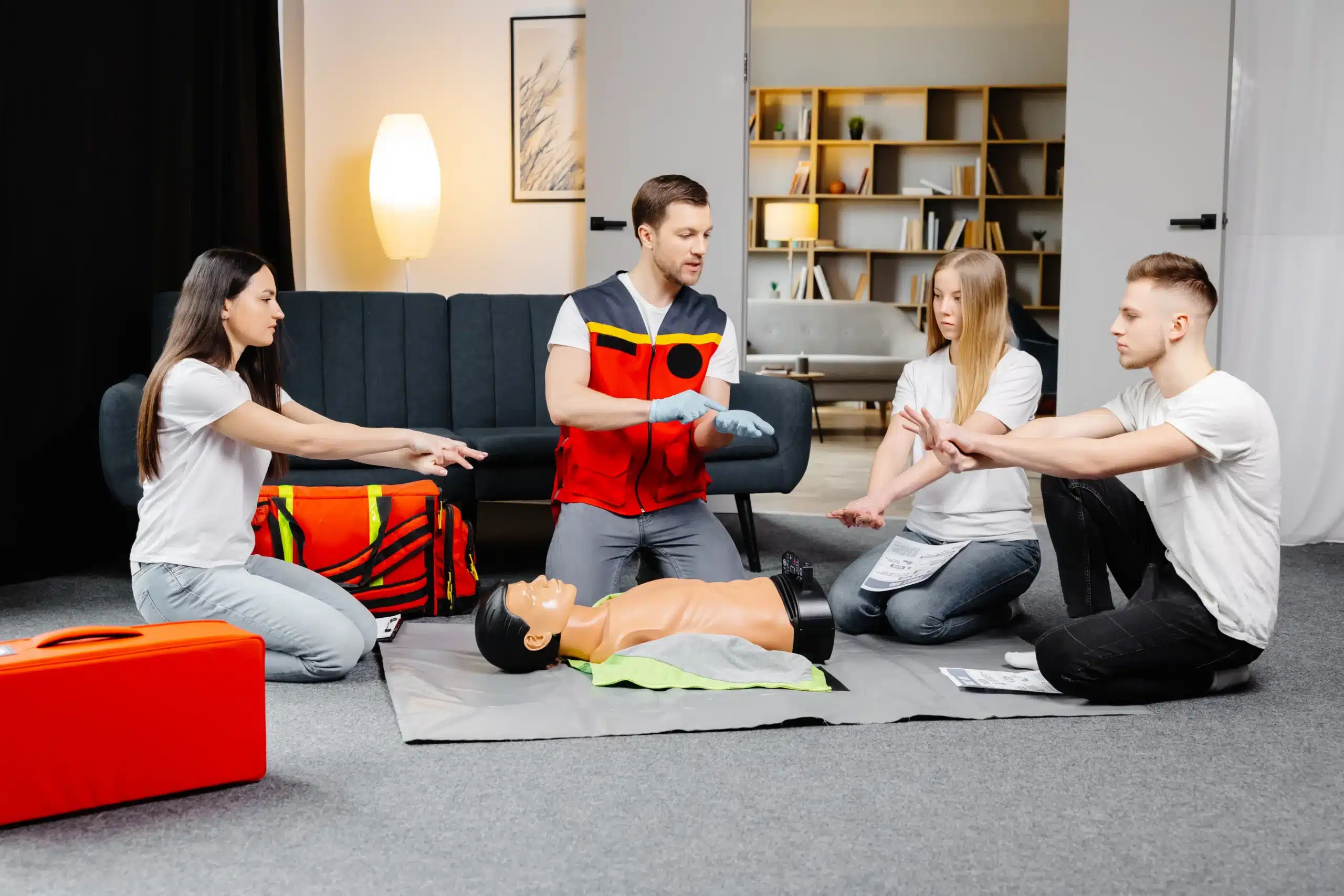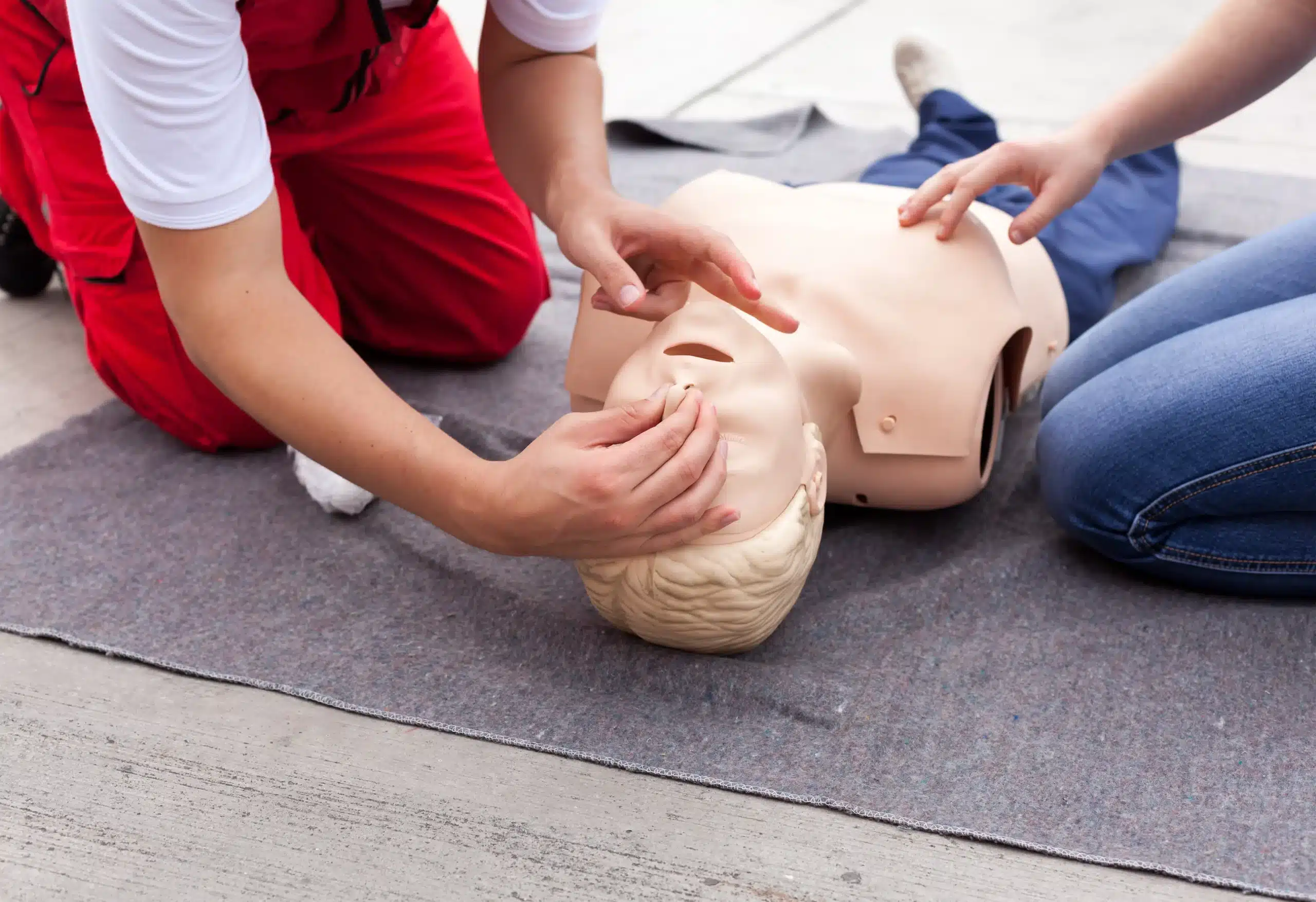As a healthcare provider, you know that seconds can matter in an emergency, especially when a child is involved. PALS HeartCode training in American Canyon empowers you with the advanced skills needed to respond effectively to pediatric emergencies. This blended learning program combines the flexibility of online learning with the crucial hands-on practice necessary for real-world scenarios. This article will guide you through the key components of PALS HeartCode, explaining who should consider this training, where to find reputable courses in American Canyon, and how this certification can benefit your career. We’ll also address common questions about the program, including prerequisites, time commitment, and certification renewal.
Key Takeaways
- PALS HeartCode blends online learning with hands-on practice: This flexible approach allows you to study at your own pace and then apply your knowledge during in-person skills sessions, leading to a more comprehensive understanding of pediatric advanced life support.
- PALS HeartCode certification is a valuable asset: It enhances your career prospects in healthcare and empowers you to confidently respond to pediatric emergencies, contributing to better patient outcomes in American Canyon and beyond.
- Research training centers and instructors carefully: Select an AHA-certified instructor and a program that aligns with your learning style and budget. Consider factors like location, reviews, and cost when making your decision.
What is PALS HeartCode?
Defining PALS HeartCode
PALS HeartCode is the American Heart Association’s (AHA) blended learning program for Pediatric Advanced Life Support. It’s a flexible way to learn PALS, combining online coursework with in-person skills practice. This approach lets you study the core material at your own speed before demonstrating your skills to a certified instructor. Think of it as a two-part system: knowledge acquisition followed by hands-on training and assessment. This PALS HeartCode training offers a convenient path to certification.
Key Components and Objectives
The online portion of PALS HeartCode uses interactive modules, case studies, and simulations to teach you how to assess and manage pediatric emergencies. You’ll work through various scenarios, making decisions and seeing the consequences of your actions in a safe, virtual environment. This helps build your critical thinking skills and prepares you for real-world situations. The course covers a range of topics, including respiratory emergencies, shock, and cardiac arrest. The goal is to equip you with the knowledge and confidence to provide high-quality care to infants and children. For more information on the course content, visit the Children’s Hospital of Philadelphia’s PALS HeartCode page.
Who Should Take PALS HeartCode?
PALS HeartCode is designed for healthcare providers who regularly care for children, including physicians, nurses, paramedics, and respiratory therapists. It’s also relevant for personnel working in emergency departments, intensive care units, and other critical care settings. Essentially, if your role involves responding to pediatric emergencies, PALS HeartCode certification can be a valuable asset. Even experienced professionals find the course beneficial for refreshing their knowledge and staying up-to-date with the latest guidelines. The Heart Center offers further insights into who can benefit from this training.
Find PALS HeartCode Classes in American Canyon
Safety Training Seminars: Your Local Expert
Safety Training Seminars offers convenient and affordable PALS courses right here in Napa. We’re proud to serve American Canyon, Vallejo, and the surrounding areas with high-quality, American Heart Association-compliant training. Our focus is on providing excellent instruction and flexible scheduling to fit your needs. Check our website for PALS course details and register for a class. We’re committed to making life-saving skills accessible to everyone in our community.
Other Training Centers
Finding the right training center is a personal decision. Here are a few other options to consider if you’re looking for more choices:
American Heart Association Training Center
The American Heart Association website is a great place to start your search. You can often find certified training centers listed directly on their site, making it easy to locate approved providers offering PALS HeartCode near you. Remember to confirm course specifics and prerequisites before you sign up.
Heart Center Training
Heart Center Training offers a variety of online courses, including PALS HeartCode. Explore their website for more information about the program’s content and format. This can help you decide if their online approach is a good fit for your learning style.
Bay Area CPR
Bay Area CPR provides training at various locations throughout Northern California. They may offer PALS training in or near American Canyon. Visit their website to see if their locations and schedule work for you.
Code 3 Life
If you’re thinking about becoming a PALS instructor yourself, Code 3 Life might be a good resource. They offer instructor training programs, which contribute to the network of qualified PALS educators. While they may not offer provider courses directly, they play a vital role in preparing future instructors.
Experience PALS HeartCode Training
PALS HeartCode training blends online learning with hands-on skills sessions. This approach lets you absorb information at your own speed and then apply it in a practical setting, making learning more engaging and ensuring you’re well-prepared for real-world scenarios.
Learn Online
The HeartCode PALS online portion lets you study at your own pace. This self-directed learning is ideal for busy schedules and ensures you understand the core concepts before practicing your skills. You’ll work through interactive modules, case studies, and simulations, building a solid foundation in pediatric advanced life support techniques. This online component is the first step in the blended learning experience, preparing you for the essential hands-on portion. You can find more information about PALS course options from the American Heart Association.
Practice Hands-On Skills
After completing the online modules, you’ll participate in a hands-on skills session. This in-person training typically lasts about five hours, including breaks. It’s a focused, intensive session designed to reinforce what you learned online. You’ll practice essential skills like CPR, intubation, and medication administration under the guidance of a certified instructor. This practical experience is crucial for building confidence and proficiency in pediatric emergency care. For a deeper understanding of PALS training, explore this helpful guide.
Blend Theory and Practice
The blended learning format of PALS HeartCode combines the best of both worlds: flexible online learning and focused hands-on practice. You’ll first study the course material online at your own pace and then solidify your knowledge with an in-person skills session. This combination ensures you’re well-prepared for real-life emergencies, making the training both effective and comprehensive. This approach is particularly beneficial for those who learn best through a combination of visual, auditory, and kinesthetic experiences. For additional details, review this PALS HeartCode course description.
Evaluate Instructors and Training Centers
Finding the right PALS HeartCode training involves more than just a convenient location. You want qualified instructors and a supportive environment. Here’s how to evaluate both:
Choose a Qualified PALS Instructor
A qualified instructor is key to effective PALS training. Look for American Heart Association (AHA) certified instructors. A robust program, like the one from Code 3 Life, prepares instructors to “Prepare, Teach, Test & Remediate, Close, and Keep Current.” This structured approach ensures instructors effectively deliver the material and support your learning. Experience matters, too. An instructor with a strong pediatric advanced life support background brings valuable real-world insights.
Interpret Training Center Reviews
Reading reviews offers a glimpse into other students’ experiences. Sites like Yelp can be helpful. Look for training centers with consistently positive feedback on instruction quality, staff helpfulness, and the overall learning environment. Safety Training Seminars, a woman-owned local company, receives positive reviews for its AHA courses. Reviews can help you identify reliable training centers and make informed decisions.
Ensure Quality Education
Quality education ensures you gain the knowledge and skills for effective pediatric care. The AHA’s HeartCode PALS blends online learning with hands-on practice. This format lets you learn at your own pace and ensures comprehensive training. FireGuy CPR highlights this blended learning style’s flexibility and effectiveness. Choose a training center that prioritizes a comprehensive curriculum and a learning experience that suits you.
Understand PALS HeartCode Costs and Value
Knowing the price and what you get for your money is key when choosing a PALS HeartCode course. Let’s break down the costs and highlight the value this training provides.
Typical American Canyon Pricing
In American Canyon, expect initial PALS HeartCode certification to cost between $175 and $250. Renewal courses are typically more affordable, usually falling within the $125 to $175 range. Safety Training Seminars offers competitive pricing, so check our PALS HeartCode page for our current rates. Comparing prices from different providers is always a good idea.
What Your Course Fee Covers
Your PALS HeartCode course fee covers more than just instruction. It typically includes access to online learning materials, often delivered via an emailed key, allowing you to study at your own pace. The fee also covers the essential hands-on skills session with experienced instructors and, of course, your official certification card upon successful completion. Providers like Emergency Medical Ed often detail these inclusions on their websites.
Compare Initial and Renewal Costs
Understanding the cost difference between initial certification and renewal is important for budgeting. Initial PALS HeartCode certification typically costs between $175 and $250, while renewal courses are generally between $125 and $175. This tiered pricing makes maintaining your certification more manageable.
Find Group Rates and Discounts
If you’re training a team, inquire about group discounts. Many training centers, including Safety Training Seminars, offer reduced rates for groups, making team training more cost-effective. These discounts can significantly lower the per-person cost. Some providers even offer package deals for multiple classes over a set period, a great option for organizations with ongoing training needs. You can often find details about group rates on providers’ pricing pages.
Prepare for Your PALS HeartCode Course
Getting ready for your PALS HeartCode training? A little prep work goes a long way. Here’s how to get organized and make the most of your course:
Gather Materials and Equipment
The beauty of the PALS HeartCode blended learning format is that the online portion allows you to learn from anywhere. For the online modules, you’ll primarily need a reliable computer, a stable internet connection, and a quiet space to focus. For the hands-on skills session, check with your chosen training center about any specific materials they recommend. Some centers, like Bay Area CPR, offer flexible locations for the in-person skills check, including coming to you.
Study Before Class
While the PALS HeartCode program adapts to each student’s learning pace, reviewing the materials beforehand can give you a head start. The American Heart Association explains that HeartCode PALS uses an adaptive algorithm to create the most efficient learning path. Familiarizing yourself with core concepts ahead of time will help you move more quickly through the online portion.
Know What to Expect
Understanding the course structure can help you feel more confident going in. The PALS HeartCode course blends online learning with a hands-on skills session. The online portion covers the core PALS content through interactive lessons and simulations. You can learn more about this online learning experience from resources like the Children’s Hospital of Philadelphia. The American Heart Association notes that the in-person skills session typically takes about five hours with breaks. Knowing this will help you plan your schedule accordingly.
Get Answers to PALS HeartCode FAQs
This section answers some of the most common questions about the PALS HeartCode program. We’ll cover eligibility, the time commitment, and what to expect for certification.
Prerequisites and Eligibility
While there aren’t any formal prerequisites for PALS HeartCode, a good grasp of basic life support (BLS) is helpful, especially for infants and children. Familiarity with heart rhythms, airway tools, and common heart medications will also make the course content easier to absorb.
Time Commitment and Duration
The online portion of PALS HeartCode usually takes somewhere between six and nine hours to finish. Your own time commitment will depend on your current knowledge and clinical experience. Remember to factor in about another 30 to 40 minutes for the in-person skills testing session. For a clearer picture of what to expect, check out this helpful FAQ document from Star CPR. You can also find more information on the PALS HeartCode process at Central Valley Med.
Certification and Renewal
After successfully completing both the online portion and the skills test, you’ll receive an American Heart Association PALS Provider eCard, good for two years. Renewing your certification is generally less expensive than the initial course. Expect renewal costs to be around $150 to $160. For more details on PALS HeartCode certification, take a look at the information provided by the St. Elizabeth Healthcare AHA Training Center. You can also find helpful information on PALS HeartCode training costs in nearby Pittsburg.
Maximize Your PALS HeartCode Investment
Advance Your Career
The PALS HeartCode course equips healthcare providers with advanced skills to manage pediatric emergencies. This specialized training can significantly enhance your career, especially in critical care and emergency medicine. Holding a PALS certification demonstrates a commitment to excellence in pediatric care, making you a more competitive candidate for advanced positions and leadership roles. It can open doors to new opportunities and potentially increase your earning potential. For healthcare professionals seeking career advancement, investing in PALS HeartCode training is a smart move.
Apply PALS Knowledge
PALS HeartCode training isn’t just about theory; it’s about practical application. The course uses videos and simulated pediatric emergencies to reinforce key concepts like systematic pediatric assessment, basic life support, PALS treatment algorithms, effective resuscitation techniques, and team dynamics. This blended learning approach helps you translate classroom knowledge into real-world action. You’ll learn to recognize and address potential breathing and heart problems in children, building the confidence to respond effectively in critical situations. The PALS HeartCode program prepares you to provide the best possible care for young patients facing respiratory emergencies, shock, or cardiopulmonary arrest by emphasizing high-performance team dynamics and high-quality individual skills, as highlighted by the American Heart Association.
PALS HeartCode’s Impact on American Canyon Healthcare
PALS HeartCode training significantly strengthens American Canyon’s healthcare system, equipping medical professionals with the skills and confidence to manage pediatric emergencies. This blended learning approach combines online coursework with hands-on practice, resulting in highly competent providers ready to deliver critical care.
Improve Emergency Response
PALS HeartCode, the online portion of the PALS blended learning course, plays a vital role in improving emergency response. By providing healthcare professionals with convenient online training, it ensures they have the knowledge and skills readily available when facing pediatric emergencies. This accessibility translates to quicker interventions and improved patient outcomes in critical situations. The course covers essential algorithms and protocols, enabling providers to make informed decisions under pressure and deliver timely, life-saving care. This preparation is essential for the fast-paced environment of emergency medicine.
Build Provider Confidence
Beyond technical skills, PALS HeartCode fosters confidence in healthcare providers. Knowing they’ve completed a rigorous training program and demonstrated proficiency through the PALS skills assessment allows providers to approach emergencies with greater assurance. This confidence translates to decisive action, effective communication within the medical team, and ultimately, better patient care. It empowers them to take charge, implement learned procedures, and work collaboratively to stabilize and treat young patients. This assurance is crucial for handling the stress and complexities of pediatric emergencies.
Enhance Team Dynamics
PALS HeartCode emphasizes the importance of high-performance team dynamics in pediatric emergencies. The curriculum reinforces the principles of effective communication, clear roles, and coordinated efforts among team members. This focus on teamwork ensures that everyone involved in a pediatric emergency understands their responsibilities and can work together seamlessly. By promoting a collaborative environment, PALS HeartCode contributes to a more organized and efficient response, maximizing the chances of a positive outcome for the young patient. This collaborative approach is fundamental to providing comprehensive and effective care during critical situations.
Related Articles
- PALS Classes in Napa, CA – Napa CPR Classes
- HeartCode BLS in American Canyon: Your Certification Guide – Napa CPR Classes
- Online ACLS Classes in Napa: Your Guide – Napa CPR Classes
- ACLS Courses in Vallejo: Your Complete Guide – Napa CPR Classes
- Your Guide to CPR Training in American Canyon – Napa CPR Classes
Frequently Asked Questions
What’s the difference between PALS and PALS HeartCode?
PALS HeartCode is the online, self-paced portion of the PALS course. You’ll still need to complete an in-person skills check with a certified instructor to receive your full PALS certification. Think of HeartCode as the classroom learning, and the skills check as the practical exam.
How long does it take to complete the PALS HeartCode training?
The online portion typically takes between six and nine hours, depending on your learning style and prior knowledge. The in-person skills check usually adds another five hours, including breaks.
Where can I find PALS HeartCode classes in American Canyon?
Safety Training Seminars offers PALS HeartCode training in Napa, conveniently serving American Canyon, Vallejo, and surrounding areas. You can also use the American Heart Association’s website to find other training centers near you.
Do I need any prior experience or certifications before taking PALS HeartCode?
While there aren’t any strict requirements, having a solid understanding of basic life support (BLS) is definitely helpful. Familiarity with medical terminology and procedures will also make the course content easier to grasp.
How much does PALS HeartCode training cost?
In American Canyon, the cost for initial PALS HeartCode certification typically ranges from $175 to $250. Renewal courses are usually less expensive, often between $125 and $175. Be sure to check with specific training centers for their current pricing and any available group discounts.
